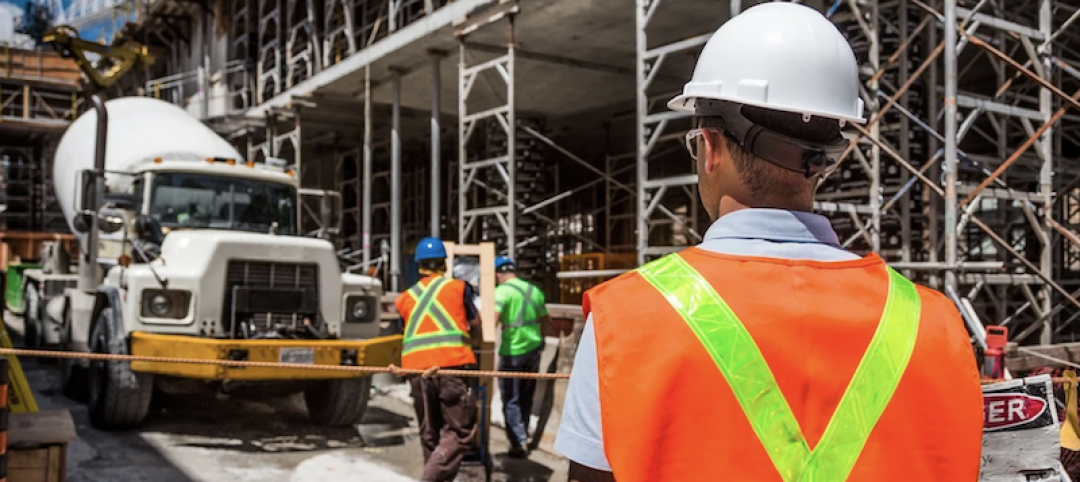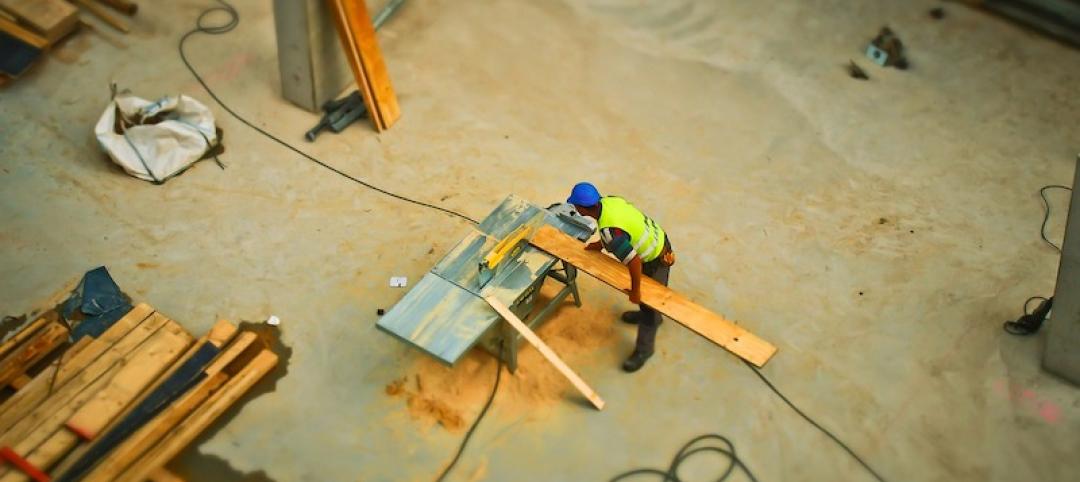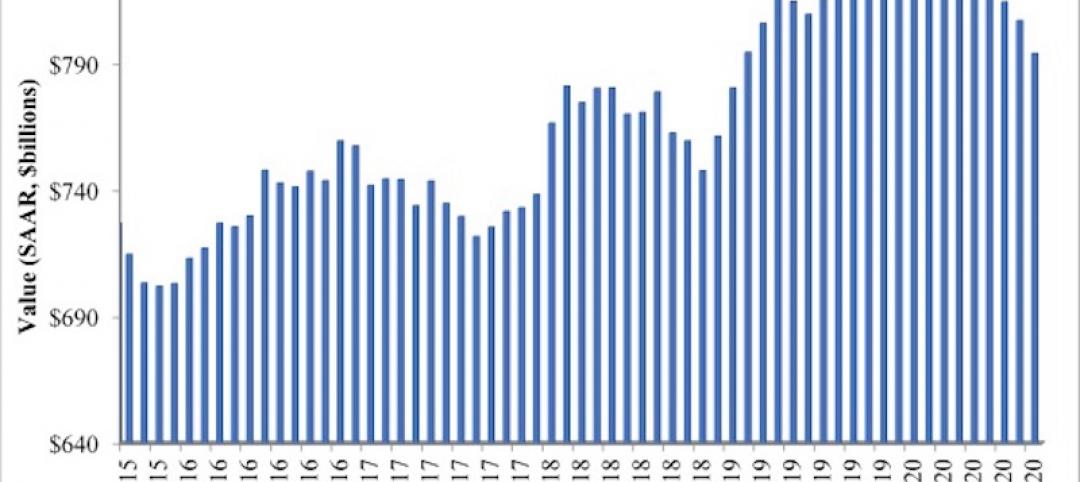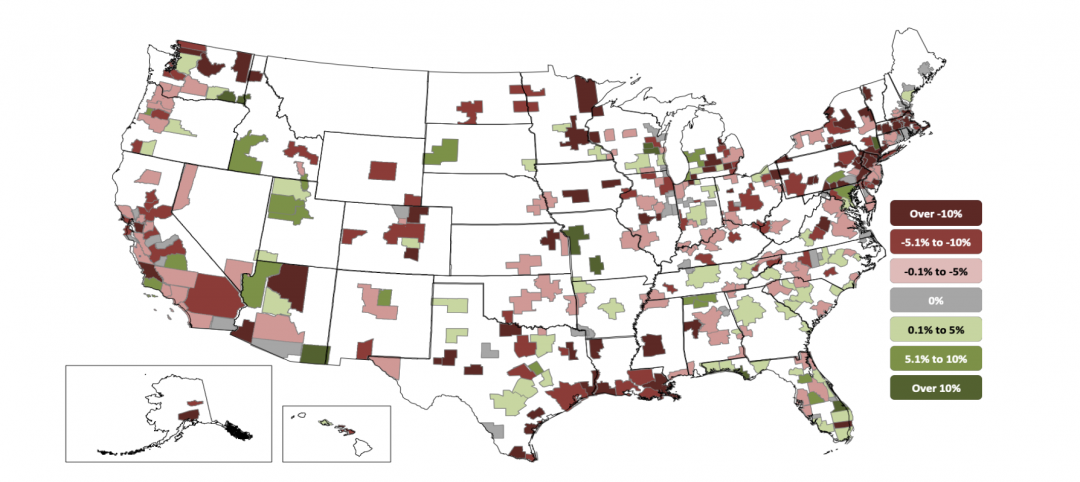The U.S. economy contracted at a 1.4% annualized rate during the first quarter of 2022. Investment in nonresidential structures declined at an annual rate of 0.9% during the quarter and has contracted nine of the past 10 quarters, according to an Associated Builders and Contractors analysis of data released today by the U.S. Bureau of Economic Analysis.
“The economy’s woeful performance during 2022’s first quarter complicates matters,” said ABC Chief Economist Anirban Basu. “Conventional wisdom says the economy has enough momentum to contend with the tighter monetary policy the Federal Reserve is pursuing to countervail inflation. Today’s data indicate that the economy is weaker than thought, which means the Federal Reserve will have a very difficult time curbing inflation without driving the economy into recession in late 2022 or 2023.
“That said, the economy should manage to generate some positive momentum during the next two to three quarters,” said Basu. “Consumer demand for goods and services remains strong. The omicron variant affected the economy during the first quarter and that does not appear to be the case during the second. Global supply chains have been adjusting to the dislocations caused by the Russian-Ukraine war. Many state and local governments are flush with cash and continue to plan for a period of elevated infrastructure outlays.
“There is one other bit of good news,” said Basu. “The weakness exhibited by the economy during the first quarter may persuade monetary policymakers to raise interest rates less aggressively. This is a matter of significance for nonresidential contractors, who have become less confident in recent months, according to ABC’s Construction Confidence Indicator. Investment in structures continues to decline in America, in part due to weakness in office, lodging and shopping mall segments. Presumably, additional rapid increases in borrowing costs would further dampen new construction in these categories. It may be that the Federal Reserve will raise interest rates more gradually than they would have knowing that the U.S. economy is already rather fragile.”

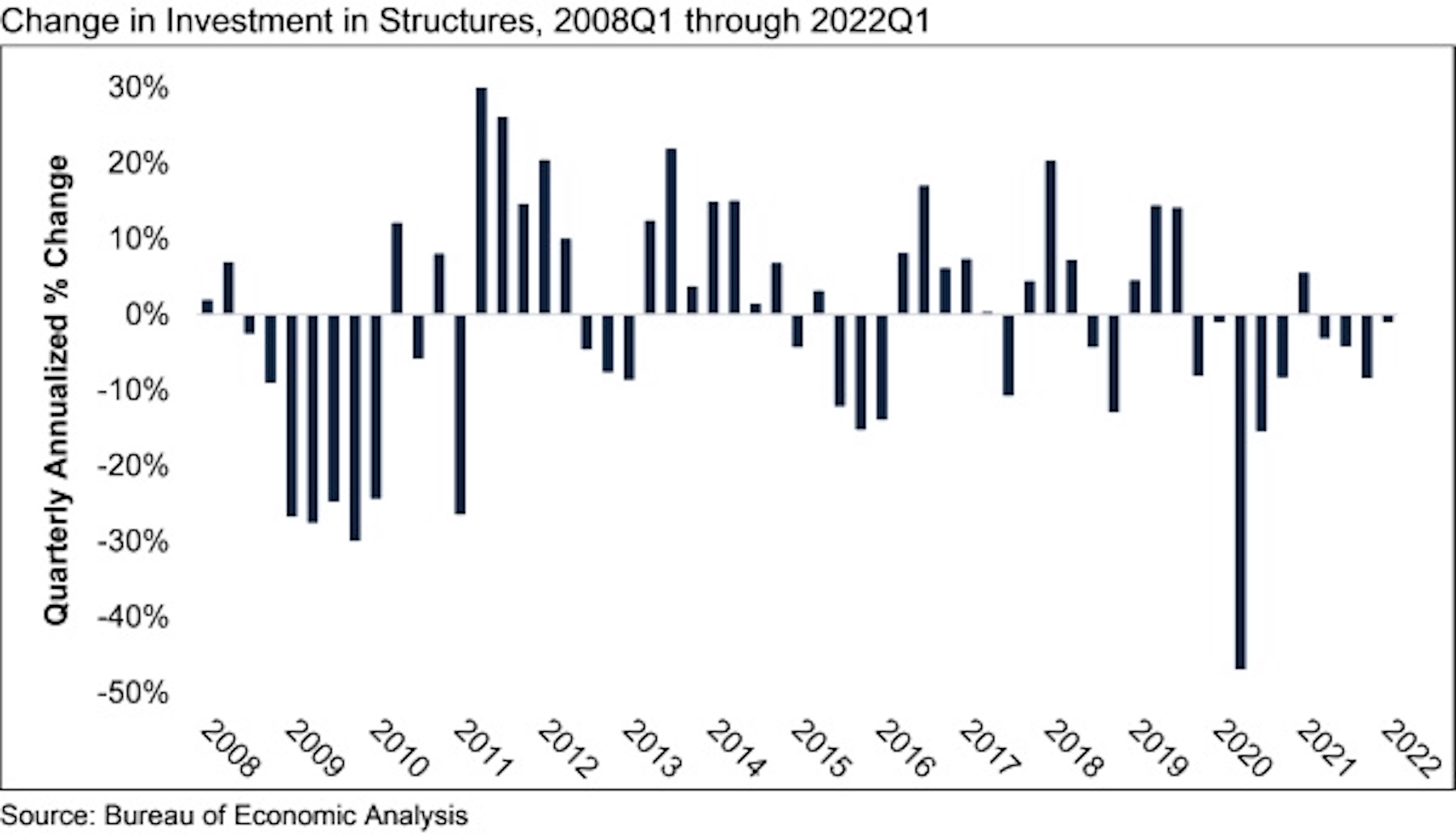
Related Stories
Market Data | Nov 30, 2020
New FEMA study projects implementing I-Codes could save $600 billion by 2060
International Code Council and FLASH celebrate the most comprehensive study conducted around hazard-resilient building codes to-date.
Market Data | Nov 23, 2020
Construction employment is down in three-fourths of states since February
This news comes even after 36 states added construction jobs in October.
Market Data | Nov 18, 2020
Architecture billings remained stalled in October
The pace of decline during October remained at about the same level as in September.
Market Data | Nov 17, 2020
Architects face data, culture gaps in fighting climate change
New study outlines how building product manufacturers can best support architects in climate action.
Market Data | Nov 10, 2020
Construction association ready to work with president-elect Biden to prepare significant new infrastructure and recovery measures
Incoming president and congress should focus on enacting measures to rebuild infrastructure and revive the economy.
Market Data | Nov 9, 2020
Construction sector adds 84,000 workers in October
A growing number of project cancellations risks undermining future industry job gains.
Market Data | Nov 4, 2020
Drop in nonresidential construction offsets most residential spending gains as growing number of contractors report cancelled projects
Association officials warn that demand for nonresidential construction will slide further without new federal relief measures.
Market Data | Nov 2, 2020
Nonresidential construction spending declines further in September
Among the sixteen nonresidential subcategories, thirteen were down on a monthly basis.
Market Data | Nov 2, 2020
A white paper assesses seniors’ access to livable communities
The Joint Center for Housing Studies and AARP’s Public Policy Institute connect livability with income, race, and housing costs.
Market Data | Nov 2, 2020
More contractors report canceled projects than starts, survey finds
Construction employment declined in most metros in latest 12 months.




